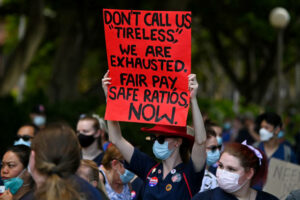
Fairly Dismissed 40 ways how to avoid it.
Fairly Dismissed 40 Ways How To Avoid it. Maintaining your job has to be taken seriously, some employees have an approach of “it won’t happen to me”, or”they cannot do without me” well guess what it does. Being dismissed can take various forms, set out below is all you need to know about dismissed, keep your job!!
Serious misconduct
Serious misconduct is defined by Regulation 1.07 of the Fair Work Regulations 2009 (Cth) as willful or deliberate behaviour by an employee that is inconsistent with the contract of employment. Or conduct that causes serious and imminent risk to the health or safety of a person or the reputation. Viability or profitability of the employer’s business. Serious misconduct is a valid reason for dismissal. Its becoming the employers dismissal option of choice. They then don’t have to pay notice or Long Service Leave, saving lots of money terminating you, be careful. (there is a blog below specifically on this)
Poor performance
Employees may be dismissed for poor performance, as they are unable to perform the inherent requirements of their role. However you must be subject to a process that is fair. A lot of employers have adopted the approach of “3 strikes and your out”. However this is necessarily so, its got to be applicable to your workplace, employment contact, and award (if your covered)
Health and safety breach
For example, not complying with safety procedures or wearing personal protective equipment. The latter was deemed a valid reason for dismissal in Aperio Group (Australia) Pty Ltd (T/a Aperio Finewrap) v Sulemanovski [2011] FWAFB 1436. Isolation breaches, not following shut down protocols in mines and industrial settings, is very common reason for dismissal. Follow the rules, better off with a performance issue that can be argued or sorted out, than out the door for a serious breach. FWC rarely supports any employee who has breached safety, almost regardless of the circumstances.
Constantly late to work
Consistent lateness may be a valid reason for dismissal on the basis of misconduct. If this is willful behaviour may be inconsistent with the continuation of the contract of employment. I understand why employees don’t turn up on time. It can be a myriad of justified reasons, illness or injury for example. Being on time or not on time is habit forming. Just get in early, relax, instead of eventually being dismissed, when really you don’t have to.
Fighting or aggressive behaviour
If an employee was fighting another employee or exhibited aggressive behaviour, this is likely a valid reason for dismissal. However, the Fair Work Commission considers all circumstances surrounding the incident. The FWC may find the dismissal harsh, unjust or unreasonable in certain situations. Don’t start the fight, walk away, keep your job. I understand the “spur of the moment” stuff, someone’s in your face, etc., but protect your job is more important. What Employer wants to give a job to someone who lost their previous job for fighting.

Poor behaviour
Poor behaviour or a negative attitude impacting colleagues, customers and supervisors was a valid reason for dismissal based on conduct in Kolodka v Virgin Australia Airlines Pty Ltd t/a Virgin Australia [2012] FWA 7828. Try and be positive, smile, some days its not easy, life can be a struggle. There is a connection between negative attitude and poor physical and mental health outcomes, you don’t need this outcome, yet alone lose your job for it.
Excessive swearing
If an employee repeatedly uses inappropriate language or swears in the workplace. This may be a valid reason for dismissal in some circumstances. However, if the workplace culture is rife with swearing (and is tolerated by the employer), it may not be a valid reason for an employee to be dismissed on that basis. Moreover, it may also depend on the language that was used and to whom it was directed.
Frequently returning late from lunch or other breaks
Repeatedly returning late from lunch or other breaks, without valid reason, may be a valid reason for dismissal. Get back on time, let your Employer know if your running late. Don’t come back smelling of alcohol, if you’ve out for someone birthday etc. Employment relationships can be like a marriage , the breakdown is usually over little things, avoid them in the workplac
Failing to meet the inherent requirements of the role
If employees fail to meet the inherent requirements of their role, they may be dismissed on the basis of their capacity. This is particularly relevant around physical injury. The Employer must reasonably adjust / facilitate for your injury, if they are able to. Employees go off on sick leave for months, even years and assume their job will be there when they want to come back, this is not always the case, Employers are entitled to run their business, staff their business. Mental Health is another difficult area in relationships to the workplace.
Theft and Fraud of company property
Theft and Fraud is a form of serious misconduct, which is a valid reason for dismissal. The Fair work Commission has zero tolerance of the excuses, “i only stole a little bit”, “I was going to bring it back”, “i only borrowed it”, “i forgot to take the money out of my pocket because i was busy”. Now cases are not always that straight forward, “keep yourself tidy”, the saying goes.

Time theft
Time theft is when employees receive pay for hours that they did not actually work (or for tasks they did not complete). It may occur where an employee clocks on that they started work earlier or finished later than they actually did. Time theft is likely a form of serious misconduct, and therefore may be a valid reason for dismissal. Many employees don’t see it as theft or serious, however Employers and the Fair work Commission do
Bullying
If an employee has bullied another employee, the company may find that they behaviour does not comply with the company code of conduct, and this may be sufficient to warrant dismissal. You cannot bully anybody these days, be careful how you act around and what you say to fellow employees.
Discrimination towards another employee
Employees may not discriminate against another employee. This means that employees must not subject colleagues to different or less favourable treatment on the basis of a particular personal attribute, such as age, gender, religion, ethnicity, disability or pregnancy. For example, in Anderson v Thiess Pty Ltd [2015] FWCFB 478, an employee was found to have been validly dismissed for having sent an email that vilified persons of the Muslim faith, which caused offence.
Sexual harassment
Sexual harassment involves any unwelcome sexual advance. Unwelcome request for sexual favors, or any other unwelcome conduct of a sexual nature. Where a reasonable person in the circumstances would anticipate that other person would be offended, humiliated, or intimidated. If an employee sexually harasses another employee, this constitutes serious misconduct and is valid reason for dismissal.
Sexual assault
Sexual assault consists of non-consensual sexual contact, and the contact can be on any part of the body through clothes. If an employee sexually assaults another employee or a customer, this would constitute serious misconduct and would be a valid reason for dismissal. It can become a police matter

Physical assault
For example, in Dewson v Boom Logistics Ltd [2012] FWA 9027, an employee was validly dismissed for serious misconduct for physically assaulting a colleague. Do not invade a co employees space, don’t get emotional, walk away, be the better person.
Drinking At Work
If company policy prohibits the consumption of alcohol during work hours, including on a lunch break, if an employee does so, it is likely there is a valid reason for their dismissal. See Selak v Woolworths Limited [2008] AIRCFB 81; Agnew v Nationwide News, PR927597.
Following Reasonable and Lawful Directions
Employees can be dismissed for failing to follow a reasonable and lawful direction of management. What this means can be in “the eyes of the beholder”, what’s reasonable to one, is not to the other. Seek clarity, give us a call to discuss (1800 333 666)
Unauthorized absence from work
Repeated unauthorized absences from work was deemed to be a valid reason for dismissal in Aperio Group (Australia) Pty Ltd (T/a Aperio Finewrap) v Sulemanovski [2011] FWAFB 1436.
Excessive time off work
If an employee has taken excessive leave, either consecutively or routinely, the employer may validly dismiss them if they believe the employee is no longer able to perform the inherent requirements of their role.
More than three months’ sick leave
If an employee is on sick leave for under three months, they are protected from dismissal. However, if an employee has been on sick leave for over three months, partially or fully unpaid, they are no longer protected from being dismissed. Even if they provide evidence that they require continued leave. Three months is calculated as either three consecutive months or a total of more than three months over a twelve month period.

Attending work under the influence of alcohol or drugs
Attending work under the influence of alcohol or drugs would likely constitute serious misconduct, as it is a risk to the workplace, and would therefore likely be a valid reason for dismissal.
Recklessly operating machinery
In IGA Distribution (Vic) Pty Ltd v Nguyen [2011] FWAFB 4070, an employee who was dismissed for recklessly causing a forklift accident (where one forklift collided with another) was found to have been dismissed for a valid reason.
Distributing pornography
For example, in Flanagan v Thales Australia Ltd t/a Thales Australia [2012] FWA 6291, employees who accessed pornographic material on work email accounts were found to have been dismissed for a valid reason. Don’t access risky
Inappropriate use of social media
Making disparaging or threatening comments about the company or colleagues on social media, regardless of whether the account is private, may constitute a valid reason for dismissal. In O’Keefe v Williams Muir’s Pty Ltd T/A Troy Williams The Good Guys [2011] FWA 5311, an employee was validly dismissed for serious misconduct in making threatening colleagues towards a colleague on Facebook. My saying is is this “if you don’t have something to say nice about somebody, don’t do it, but if you have to, don’t put it in writing”
Threatening colleagues
Threatening colleagues would constitute serious misconduct. (thus be a valid reason for dismissal). Because such conduct causes serious and imminent risk to the health or safety of a person.

Threatening company reputation
Conduct that causes serious and imminent risk to the reputation, viability or profitability of the employer’s business is deemed serious misconduct, and therefore is a valid reason for dismissal. I see this with some employees threatening their employer that they will go to the press. Both sides have a mutual obligation to be good and considerate to each other”
Sabotaging client relationships
Sabotaging client relationships would likely cause serious and imminent risk to the reputation, viability or profitability of the employer’s business, and would therefore be deemed serious misconduct.
Deliberate damage to company property
Deliberately damaging company property would be serious misconduct because it is willful or deliberate behaviour that would be inconsistent with the continuation of the contract of employment, but may also affect the viability or profitability of the employer’s business.
Repeatedly not complying with the company dress code
If an employee has been instructed to comply with the dress code but refuses to, this may be a valid reason for dismissal on the basis that they refused to comply with a lawful direction of their employer. For example, in Woolworths Limited (t/as Safeway) v Brown, PR963023. A butcher was found to have been validly dismissed for refusing to remove his eyebrow ring at work. Another example is wear safety boots, they can be uncomfortable, however it becomes a OH&S issue
Blackmail or extortion
Blackmail and extortion are indictable criminal offences, and therefore would constitute serious misconduct warranting dismissal.

Breach of privacy
In some industries, breaching privacy may constitute serious misconduct warranting dismissal. Reading Emails or accessing emails that are not yours. A more controversial area, is access employees social media, private settings, etc
Breach of a confidentiality agreement or employment contract
Breaching a legal document like a confidentiality agreement or employment contract may mean the employee cannot be trusted or amount to serious misconduct.
Giving company information to a competitor
Giving company information to a competitor would likely not only damage the employer’s business, but also lead to a loss of trust in the employee. Therefore, this would be a valid reason for dismissal. Courts are becoming increasingly critical of employees who “steal” employer information for their own purposes (going into business for themselves).

Falsifying or manipulating business records
For example, if an employee falsified accounting or disciplinary records, or email correspondence, this dishonest conduct would likely be a valid reason for dismissal on the basis of serious misconduct. Falsifying your resume to get the job to begin with.
Falsifying personal information or credentials
If an employee falsified personal information about themselves, such as their credentials, qualifications or work experience, this dishonest conduct could lead to a loss of trust in the employee and therefore a valid reason for dismissal. Everybody puts their “best foot forward”, but there’s a difference between this and telling lies. If you lie on your resume its there for ever. Employers really take it as a personal insult to them, be careful what you put in writing.
Failing to disclose recent criminal record
If an employer asked about an employee’s criminal record during the recruitment process, but that employee was dishonest, this could constitute serious misconduct. Moreover, some criminal convictions or offences may be relevant to the employee’s ability to perform the inherent requirements of their position. Such as if they are working with children. This has become an increasing issue, as convictions as a percentage of the population has risen over the last 15 years.

Coercion
Coercion involves taking or threatening action that would be unlawful or unconscionable, intending to deprive someone of their choice to do or not do something. As coercion is against the law, this would constitute serious misconduct and would therefore be a valid reason for dismissal.
Deliberately billing clients incorrectly
Deliberately billing clients incorrectly could lead to reputational or financial damage for the employer to rectify the employee’s behaviour. Because the conduct is dishonest it would likely constitute serious misconduct, warranting dismissal. Employees are chasing bonuses, push up the figures, or think their helping the employer, its their business they decide the billing.
Repeated deceptive or dishonest conduct
Employee dishonesty may constitute misconduct, and may therefore be a valid reason for dismissal – APS Group (Placements) Pty Ltd v O’Loughlin [2011] FWAFB 5230.
Constantly refusing to perform overtime hours, when it is expected of the role
Some jobs may expect that its employees complete work on overtime hours, and a constant refusal to do so may mean the employee is failing to meet the inherent requirements of their role.
Mismanagement of staff
If a manager is inept at managing its staff, causing damage to the business, this may be a valid reason for dismissal, provided that the issue is serious enough and causes serious and imminent risk to the health and safety of a person or the reputation, viability or profitability of the employer’s business.

Loss of trust in employment relationship
If an employee has been dishonest or there has otherwise been a loss of trust in the employment relationship, the employer may have reason to dismiss the employee if the relationship is unrecoverable. The employee and the employer have to trust each other, sometimes its like any relationship, you have to work at it. Good relationships / friendships are no accident.
Inappropriate out-of-hours conduct relating to employment
For example, inappropriate conduct at a work function or messaging colleagues inappropriate content out-of-hours would likely constitute serious misconduct. The boundaries can certainly become blurred, we see this at Xmas parties, relationships between co workers, that have ended. How social media intrudes into the work life.
Negligence
If an employee has been negligent in carrying out their employment duties, this may be a valid reason for dismissal. You have to show care and interest in the job, if you cannot do this, perhaps find another one. If its issues with your employer try and sort it out, take the matter to the Fair work Commission or the Ombudsman, that’s what their for.
Causing significant financial loss to the company
Causing significant financial loss to the company would be serious misconduct because it is conduct that would cause serious and imminent risk to the reputation, viability or profitability of the employer’s business.
Dishonesty in a disciplinary interview
For example, in Streeter v Telstra Corporation Limited [2008] AIRCFB 15, an employee engaged in sexual intercourse in a hotel room in front of other employees. The other employees complained to the company and an investigation was commenced. The employee was dismissed for having been dishonest in the disciplinary interview and investigation, meaning that the employer felt that they could no longer trust the employee to be honest in the future. This was found to be a valid reason for dismissal.
Gambling
It may be against the company policy for its employees to gamble, such as if the employees work at a casino or other betting agency. Such a breach of policy would therefore be a valid reason for dismissal. For example, in Atfield v Jupiters Limited trading as Conrad Jupiters Gold Coast, PR925334, a manager of a casino was validly dismissed for serious misconduct for placing a TAB bet within the casino complex while working.
Improper use of work information
An employee cannot improperly use information or resources through their employment. For example, in Applicant v Australian Federal Police [2012] FWA 1352, an employee was found to have been validly dismissed for requesting a colleague investigate her ex-husband’s finances, which was in breach of the company code of conduct.

Fairly Dismissed 40 Ways How To Avoid It
The list is not extensive, i hope this helps, Its a reminder of what to stay away from or not do, some of it is common sense. We publish allot of blogs about unfair dismissals, general protections, constructive dismissals, but its far more fun / less stressful to keep a job, than to lose it and the stress of losing money and finding a new one. You are always welcome to call us and discuss your situation, and get representation. 1800 333 666. We are A Whole New Approach P/L, we are not lawyers, but voted No1 for workplace advice. Matters involving termination in the workplace, diversity in the workplace, we are happy to discuss.
We do both no win, no fee work and paid work, discuss your options
Articles relating to Fairly dismissed 40 ways to avoid it
Dismissal over social media update, (Onlyfans)






